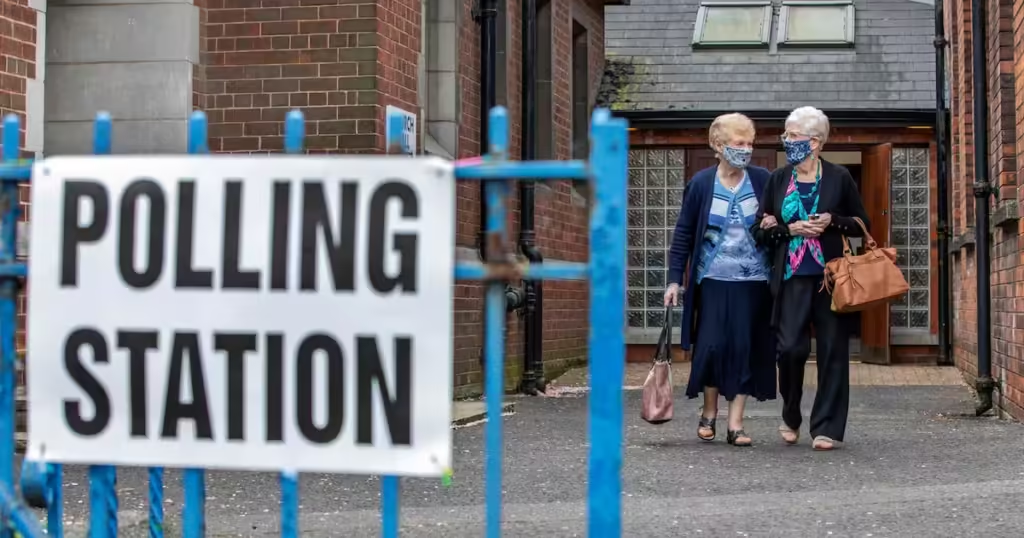Ireland’s political system first before going further more about the exit poll and what it meant. The political situation in the country is parliamentary and to form the government, general elections are conducted to elect representatives to the Dáil- the house of representatives. However, none of them normally polls a clear majority and, as such, more often than not results in the formation of the coalition government.
Do Read:
The Supreme Court’s View on Vaping and Trump’s Potential Influence
What is a Coalition Government?
A coalition government is that in which two or more political parties come together to form government in the Dáil. Because no party can on its own gain enough seats in parliament to form a government on its own right, then one has to form a coalition. Coalition comprise of parties that have a minimum of partially agreed on the policy goals, even though the presence of conflicting goals sometimes may require a compromise in order to form a stable government.
Why Coalition Governments are Common in Ireland
It is crystal clear that a multi-party system of Ireland that has several substantial political organizations makes it quite logical to have coalition governments. It includes Fianna Fáil, Fine Gael, and Sinn Féin as the three most significant political parties, other political parties are the Labour Party and The Green Party. Due to the fact that votes are divided and there arises the question of coalition, coalition governments have emerged, more often in the last decades.
Recent Exit Poll Results and What They Indicate
Latest Exit Poll: Ireland Is Expected To Become Headed Towards A Coalition Government For The Third Time. There is nothing new about a coalition government in the present-day Irish political system; however, what would fascinate most people are the details of this coalition and what parties it is expected to form.
Key Parties and Expected Role
According to the exit poll Fianna Fail and Fine Gael which are two of the biggest and two of the most dominant parties in Ireland could GHReA become the center of the new government in cooperation with the Green Party. Sinn Féin, which has really taken off in recent years, may also have a place, though it could struggle in making alliances with the traditional parties.
What this means for Ireland’s Future
Overall, this reflects a change in the political preferences of the Irish electorate. Sinn Féin gaining ground suggests an interest for change in the policies and the leaders of the country, while Fine Gael and Fianna Fáil holding up suggest that voters want stability with relatively moderate governance. Balance is clearly needed between change and continuation.
Coalition Government Challenges
While coalition governments can provide stability and broader representation, there are still problems that accompany them. The most important of these is the demand for compromise, particularly with policy differences between coalition partners.
Policy Differences and Compromise
Balancing conflicting policy priorities among these differing party constituents will be one of the primary challenges for a coalition government. Sinn Féin seeks more radical economic shift ideas, such as applying a wealth tax, than does Fine Gael, that which holds fiscal responsibility and tight measures of austerity to more esteem.
Potential for Instability
Coalitions can also be unstable. Coalition governments in Ireland have, in the past, sometimes had problems remaining cohesive due to disagreement on a number of issues. It can lead to a type of gridlock or even early elections if partners decide to pull out if their objectives are not being met.
Possible Coalition Scenarios Post-Election
Looking beyond the exit polls, it’s clear that multiple coalition scenarios are possible depending on the final election results. The key question is which parties will be able to form a stable and effective government.
Likely Party Pairings and Their Benefits
A coalition between Fianna Fáil and Fine Gael seems the most probable, since they have long historical ties and a similar approach to economic management. However, the inclusion of smaller parties such as the Green Party or the Labour Party will add diversity to the policy-making of the government, providing a wider range of ideas.
What Voters Expect from the Coalition
Most likely, they are going to seek practical government and policy that can work well together: economic growth must go along with social equity. Among the issues expected to top the agenda for many would be housing shortages, reform of healthcare, and combating climate change.
Effect on the Economy and Social Policies in Ireland
The impact of a coalition government on the economy and social policies of Ireland cannot be exaggerated. The direction a new government takes in terms of policy will shape the country for years to come.
How Coalition Governments Affect Economic Decisions
Coalition governments tend to be more moderate in their economic policies because of the requirement for consensus. The post-election economic direction could continue the status quo of current Irish policies or move towards more progressive reforms, especially on taxation and public services.
Changes in Social Policy: What Could Shift?
Social policy changes will also be important in the new government’s agenda. With parties like the Green Party advocating for stronger environmental protections and Sinn Féin calling for healthcare reform, we could see a more socially conscious government that prioritizes climate action and social welfare.


